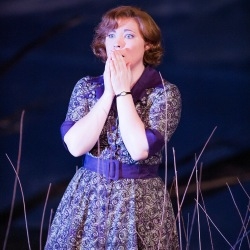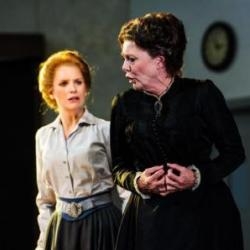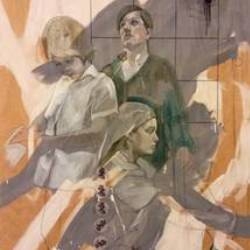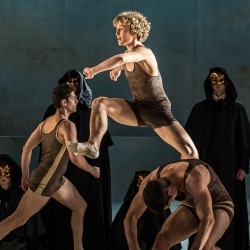Review: The Turn of the Screw (Regent's Park Open Air Theatre)
A stunning reimagination of Britten’s ghost opera from ENO and Regent’s Park Theatre
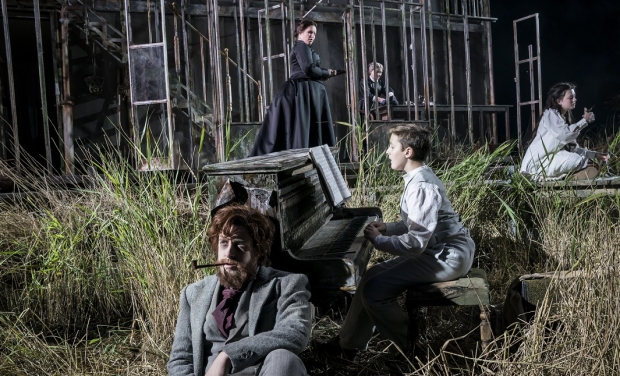
© Johan Persson
It is a curious story, yet one that inspired a masterwork. The novella by Henry James provided Benjamin Britten with a subject that chimed irresistibly with his own interior battles. The composer subjugated sexual longings that he knew to be unacceptable and channelled them instead through a thematic preoccupation with tales of innocence corrupted. And if The Turn of the Screw is about anything, it's that.
Timothy Sheader's new staging, co-produced by English National Opera and his own Regent's Park Theatre, is revelatory. He treads a fine line in depicting the possession of two young children by their now-dead abusers, reading the understated tale as an erotic horror story and balancing shock moments with shocking imagery. His interpretation is all of a piece with Soutra Gilmour's rotting, weathered designs wherein the house at Bly is itself a ghostly shell, a ruin of rusting metal struts and beams that sits derelict among the Suffolk reedbeds and is only accessible by slatted wooden treadways.
Sheader's direction abounds in felicities. A passage-of-time interlude begins with a game of hide-and-seek and segues into a reappearance days or possibly weeks later; young Flora's call to her doll to "Go to sleep" ends as an imprecation to the meddlesome Governess; the latter caresses the ghosts in her slumbers while a heavily pregnant Miss Jessel sings "Lost in my labyrinth".
Thirteen members of the ENO Orchestra, most of them section leaders – which may help explain the so-so playing at Grange Park Opera by an identically billed band – delivered a first-night performance of scintillating precision under Toby Purser from their base in a spectral space behind the house. Of necessity in the open air they were discreetly amplified, as were the singers. That's a decision that resulted in aural oddity when singers vanished through doors yet resounded loud and clear.
William Morgan declaimed a forthright Prologue while his fellow tenor Elgan Llŷr Thomas dripped seductive melismas into the children's ears as the bewhiskered ghost of Peter Quint. These two exciting young artists are alternating their roles during the run, the former singing Quint in a strong-looking second cast.
Elin Pritchard lent a rancid lustre to Miss Jessel and Janis Kelly played the housekeeper Mrs Grose as slightly less simple than she sometimes appears. Both sopranos rang true in Britten's idiom, while a third, Anita Watson, brought extensive experience of her role to a taut, tortured account of the Governess.
It was, though, the children who astounded. Elen Willmer was a poised and protean Flora, her vocal performance secure and her briefly-glimpsed mood swings positively frightening. As for Daniel Alexander Sidhom as her brother, his versatility knew no bounds. As well as singing a perfectly weighted Miles he even played, or seemed to, the boy's vicious piano solo with all the notes correctly under his fingers. Player-piano or not, it was a stunning passage of virtuosity from one so young. How could he do all that and still stay resolutely in character? Demonic possession's my best guess.




